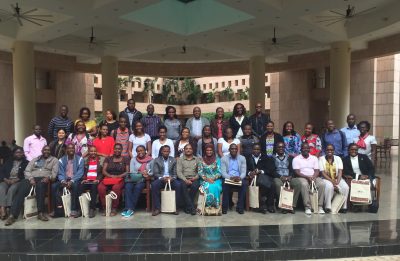
It was my first visit to India, and it could not have come at a better time. In the last one year alone I have taken part in five fund raisers and supported friends or relatives headed to India to seek medical treatment. As a health care manager, I find this very disturbing. How has India managed to balance the cost, quality and access triangle? What can Kenya learn from India?
Well, there’s a lot to learn from India, if the findings of this five-day trip to Hyderabad are anything to go by. Firstly, the state government of Telangana, in which Hyderabad City is situated, takes health care very seriously. The Aarogyasri Health Financing scheme was initiated by the state government and is fully funded by it. The scheme owes its success to government commitment, heavy investment in technology and strategic human resource management practices. Utilisation of demand-side financing as well as of case-based payment strategies have effectively incentivised implementation of facilities to improve quality, while keeping the cost of provision very low.
Secondly, innovation is a key feature of the Indian health care industry. At Dr Reddy’s Laboratories scientists demonstrated prowess in using innovative methods and technology to increase efficiency in drug manufacturing processes, eventually bringing down the cost of production sometimes by as much as 50%. High level skill capacity and confidence was evident in all speeches and demonstrations.
One of the scientists confidently commented, ‘If there’s a molecule on the surface of the earth that can be manufactured by a human being we can manufacture it at Dr Reddys’. Moreover, presentations on innovations by two MBA students left the group quite excited. One student with training in biomedical engineering presented an innovation, which has led to increased screening and early diagnosis of NCDs, while the other student demonstrated how he managed to increase access to cancer treatment by improving efficiency of the manufacturing process of one anti-cancer drug.
In every institution we visited tribute to the initiator was evident on walls and in presentations, signifying a culture that edifies innovation.
Thirdly, quality management seems to be the foundation on which hospitals stand. The Continental hospital was my benchmark for prospective quality management practices; embedding quality in the structural design of the hospital, cherry picking staff, with emphasis on quality and investment in technology. It’s no wonder that this hospital acquired JCI accreditation within two years of launching operations. Apollo hospital, on the other hand, demonstrates real value in health care; maintaining a delicate balance between access (daily outpatient attendance in excess of a thousand), quality (several centers of excellence within the same hospital, JCI accreditation among others), innovations (Tele ICU, real time client satisfaction survey apps) and excellent human resource practices that have seen them retain some of their doctors for as long as 30 years.
Lastly, but most importantly, we learnt a lot from our hosts, the India School of Business (ISB). The school environment is breathtaking; carefully planned structures that display Indian architecture, beautiful and well maintained lawns, serene environment surrounded by natural vegetation, friendly and welcoming faculty and students, just to mention a few. It is just the ideal environment for learning.
Moreover, all that we learnt in Hyderabad was a result of careful planning by Mr Shiv and his team. The last night was particularly exciting since it gave us a chance to interact with students, faculty and even participate in an Indian traditional dance.
In conclusion, Isaac Newton had once said, ‘He sees far, who stands on the shoulder of giants’. In order to address our health care problems, we need not reinvent the wheel. There are valuable lessons that we can learn from Hyderabad.
– Dr. Florence Akinyi Achungo (MBCHB, MSc (TID), MBA (HCM)
Visiting Student from Strathmore Business School, Kenya.

